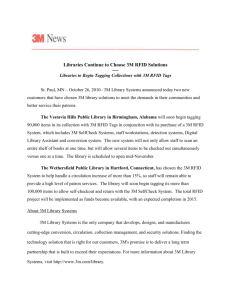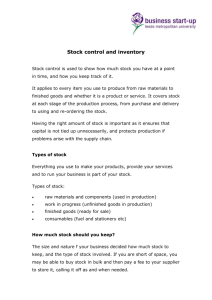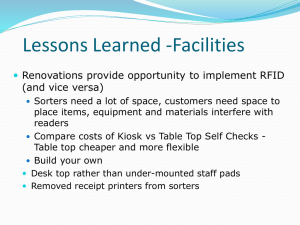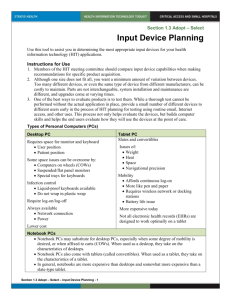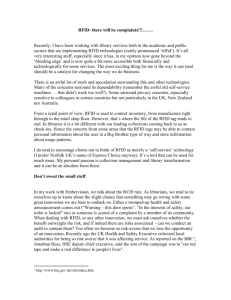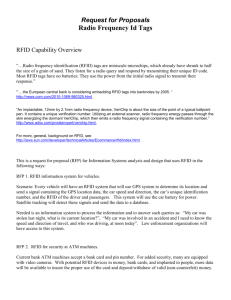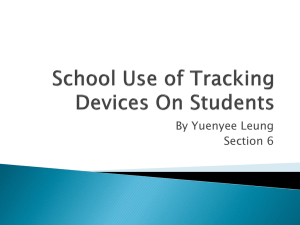Discussion #6 - Personal.psu.edu
advertisement
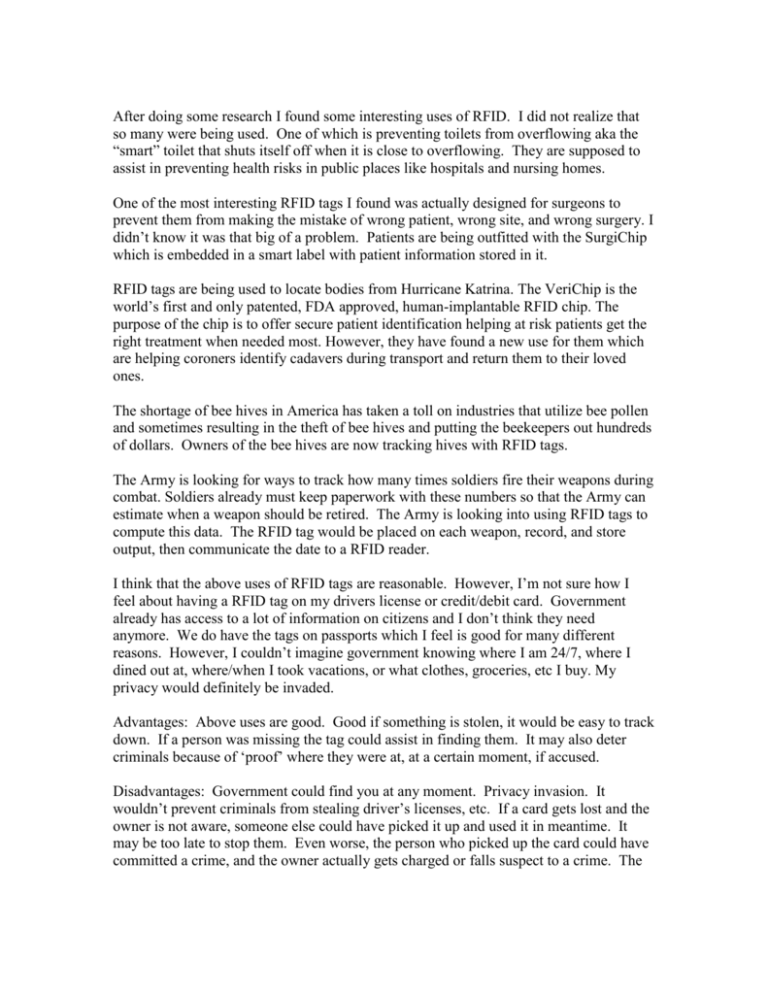
After doing some research I found some interesting uses of RFID. I did not realize that so many were being used. One of which is preventing toilets from overflowing aka the “smart” toilet that shuts itself off when it is close to overflowing. They are supposed to assist in preventing health risks in public places like hospitals and nursing homes. One of the most interesting RFID tags I found was actually designed for surgeons to prevent them from making the mistake of wrong patient, wrong site, and wrong surgery. I didn’t know it was that big of a problem. Patients are being outfitted with the SurgiChip which is embedded in a smart label with patient information stored in it. RFID tags are being used to locate bodies from Hurricane Katrina. The VeriChip is the world’s first and only patented, FDA approved, human-implantable RFID chip. The purpose of the chip is to offer secure patient identification helping at risk patients get the right treatment when needed most. However, they have found a new use for them which are helping coroners identify cadavers during transport and return them to their loved ones. The shortage of bee hives in America has taken a toll on industries that utilize bee pollen and sometimes resulting in the theft of bee hives and putting the beekeepers out hundreds of dollars. Owners of the bee hives are now tracking hives with RFID tags. The Army is looking for ways to track how many times soldiers fire their weapons during combat. Soldiers already must keep paperwork with these numbers so that the Army can estimate when a weapon should be retired. The Army is looking into using RFID tags to compute this data. The RFID tag would be placed on each weapon, record, and store output, then communicate the date to a RFID reader. I think that the above uses of RFID tags are reasonable. However, I’m not sure how I feel about having a RFID tag on my drivers license or credit/debit card. Government already has access to a lot of information on citizens and I don’t think they need anymore. We do have the tags on passports which I feel is good for many different reasons. However, I couldn’t imagine government knowing where I am 24/7, where I dined out at, where/when I took vacations, or what clothes, groceries, etc I buy. My privacy would definitely be invaded. Advantages: Above uses are good. Good if something is stolen, it would be easy to track down. If a person was missing the tag could assist in finding them. It may also deter criminals because of ‘proof’ where they were at, at a certain moment, if accused. Disadvantages: Government could find you at any moment. Privacy invasion. It wouldn’t prevent criminals from stealing driver’s licenses, etc. If a card gets lost and the owner is not aware, someone else could have picked it up and used it in meantime. It may be too late to stop them. Even worse, the person who picked up the card could have committed a crime, and the owner actually gets charged or falls suspect to a crime. The tag would put that persons card at the scene. What about hackers? Hackers seem to be evolving constantly and somehow hacking into ‘no hackable areas’. http://www.gcn.com/print/27_10/46206-1.html
